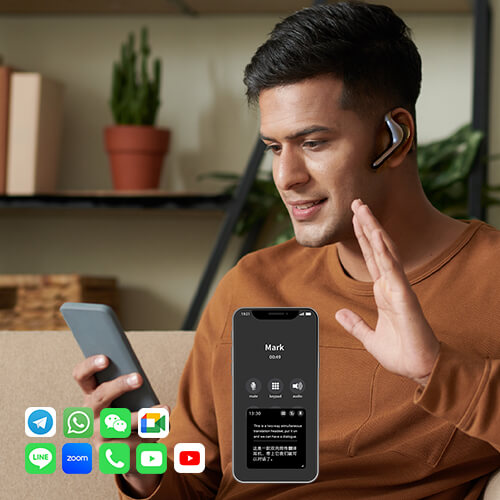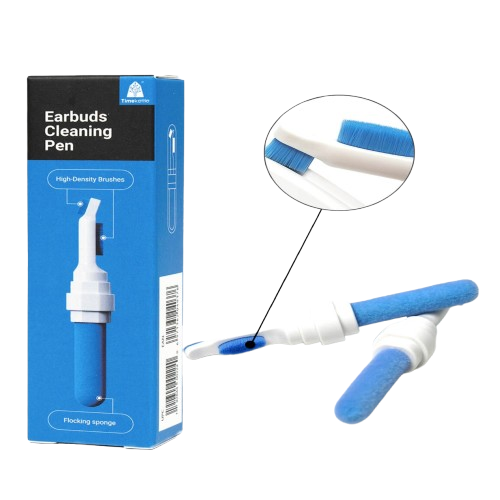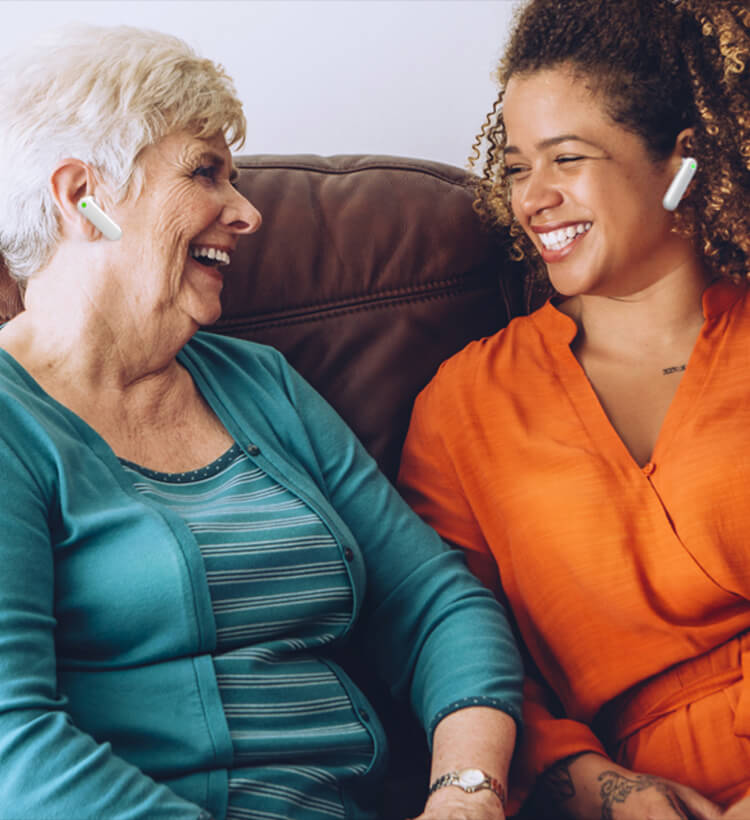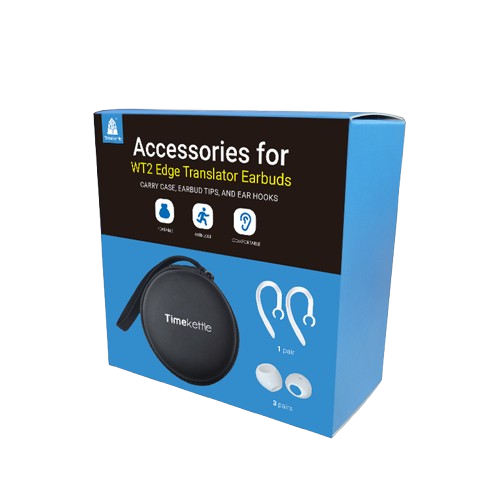
How Students Use Translation Earbuds for Studying Abroad?
Imagine this: You’re in a packed lecture hall somewhere in Germany. The professor is talking a million miles an hour about thermodynamics in German. You’re nodding along, pretending to follow, while frantically Googling phrases on your phone. Sound familiar?
If you’re an international student, chances are you’ve been there. Studying abroad is amazing, no doubt but let’s be real, the language barrier can be a real wall. It’s not just how well you follow class. It seeps into everything group projects, casual chats with classmates, even ordering lunch on campus.
That’s where translation earbuds come in. They’re not just fancy tech gadgets, they’re becoming a lifeline for students trying to thrive in a foreign language environment. With real-time translation and offline capabilities, they’re helping students understand more, stress less, and actually connect.
In this post we’ll explore how translation earbuds are changing the way students experience life abroad. From surviving tough lectures to making friends over coffee, they’re turning “lost in translation” into “let’s talk.”
Understanding Lectures and Course Materials
Real-Time Translation of Academic Content
Let’s be real, trying to follow a college lecture in a second language can be tough. Professors speak fast, use big words and make references that go right over your head if you’re not from the same culture or background.
That’s where translation earbuds really come in. Devices like the Timekettle WT2 Edge translation earbuds let you hear real-time translations as the professor is speaking. No more pausing to Google every third sentence. You can just focus, listen and actually learn what’s going on in class.
Sarah Chen, a psychology student from China studying at the University of Edinburgh, put it perfectly:
“During my first semester, I’d spend 4–5 hours each night trying to figure out what I’d just heard in a two-hour lecture. With translation earbuds, I don’t need to translate everything anymore — I can focus on the ideas.”
Comprehending Technical Jargon and Academic Language
Let’s not forget, every subject has its own language. Biology students deal with Latin medical terms. Engineers have blueprints and specs to understand. Business students? They’re decoding finance-speak.
That’s where smart translation earbuds really shine. Unlike general translation apps, these devices can recognize field-specific language and adjust accordingly. For example, they’ll know that “cell” in a biology lecture is different from “cell” in a phone tech discussion. That kind of context-aware translation makes a big difference.
Students say they actually learn faster when using earbuds. Why? Because they’re hearing the original words, getting instant translations and naturally connecting the two. It’s less about memorizing vocabulary and more about understanding meaning.
Studying with Local Classmates

How Translation Earbuds Are Changing the Classroom Experience
Group study sessions are where things start to click, ideas get bounced around, questions get answered, and concepts finally make sense. But for international students, these sessions can be tough. It’s hard to contribute when everyone else is speaking a language you’re still learning.
That’s where translation earbuds are making a real difference.
Instead of relying on one bilingual student to do all the translating, everyone can speak their own language and still follow the conversation. It creates a more equal, more relaxed environment where everyone can participate fully.
Take Marco Rodriguez, a student from Spain studying at MIT. He says:
“Before I had translation earbuds, I mostly kept quiet during group work. I had ideas but didn’t want to slow things down or say something wrong. Now, I speak up, and my classmates actually want to hear my take. We’re finally on the same page.”
Enabling Active Participation in Academic Discussions
In many classrooms, speaking up isn’t optional, it’s part of your grade. But for students still getting used to a new language, raising a hand can feel like stepping into the spotlight with no safety net.
Translation earbuds are that safety net.
They let students:
-
Check the meaning of a question before answering
-
Think through their answer in their native language, then translate
-
Join in class discussions without second-guessing every word
-
Ask for clarification without looking lost
And here’s the thing: once students feel like they can speak, they usually do. That shift in confidence leads to better class engagement, stronger relationships with teachers and peers, and often better grades.
Aiding Language Acquisition
Reinforcing Vocabulary and Understanding
While translation earbuds are great for instant communication, they’re also sneaky little language teachers. Many models come with apps that log common phrases, build personalized word lists and help you practice new vocabulary.
So instead of memorizing flashcards, you learn through real life use — hear a word, get the translation, then see it again naturally. That kind of contextual repetition helps new language stick.
This is especially helpful for those who learn by doing, not just by studying. The earbuds give you feedback in real time, so learning is part of daily life — not something extra to cram in.
Building Confidence in Real-World Situations
The biggest obstacle in language learning isn’t grammar — it’s fear. Fear of making a mistake, of sounding silly, of not being understood. Translation earbuds help with that.
They give you the courage to:
-
Ask questions in class
-
Join social events without hesitation
-
Visit professors during office hours
-
Chat with local classmates casually
And as that comfort grows, something interesting happens: you start using the earbuds less. You become more fluent, more independent — using the earbuds as a tool, not a crutch.
Dr. Maria Santos, a linguistics professor in Barcelona, sees it all the time:
“When you use translation tech thoughtfully, it speeds up your fluency. It’s not about skipping the work — it’s about building enough confidence to do the work.”
Making Travel and Exploration Easier

Navigating Multilingual Environments
Studying abroad isn’t all lectures and libraries. A big part of the experience is exploring a whole new place. That means getting on local trains, eating food you’ve never tried before and asking strangers for directions when you’re a little lost.
But doing all that in a language you don’t speak? That’s where things get tricky, or even scary. That’s why more and more students are turning to translation earbuds. These little devices make it way easier to navigate unfamiliar places without constantly fumbling through translation apps or phrasebooks.
Whether you’re figuring out the Paris Metro, ordering ramen in Tokyo or trying to find your way in a small Italian village, translation earbuds give you that instant confidence boost. Suddenly you’re not limited by language and that makes it easier to step outside your comfort zone.
And it’s not just about sightseeing. Many study abroad programs include things like fieldwork, internships or even short term jobs in local communities. Translation earbuds help you participate fully even when the local language isn’t one you’ve studied.
Connecting with Locals During Cultural Experiences
Some of the best parts of living abroad don’t happen in a classroom, they happen over dinner with a host family, while shopping at a local market or during a casual chat at a train station. But let’s face it, it’s hard to connect with people when you’re constantly worried about saying the wrong thing.
That’s where translation earbuds come in again. They take the pressure off and let conversations flow more naturally even if you don’t speak the same language.
Students who use them say they end up talking more and more deeply with:
- Host families
- Local shopkeepers and service providers
- Fellow travelers from different countries
- Community members during volunteer activities
These aren’t just small talk moments, they’re the kind of conversations that stick with you. A lot of students say they made real friends this way and even kept in touch after they went home.
Key Features to Consider When Choosing The Right Translation Earbuds for Study Abroad
Not all translation earphones are created equal. When purchasing electronics for foreign study, pay attention to the following critical functions:
Language Support: This needs to support the device you will pick with your native language and the country where you will stay with maximum accuracy.
Battery Life: Technology with at least 8-10 hours of non-stop use would best accommodate full school days.
Connectivity Options: Choose the earbuds with offline as well as online options, as the Internet facility is not available everywhere.
Audio Quality: Good quality is essential for listening to lectures and conversations when it is loud.
Companion Apps: Strong mobile applications support the learning process, with words to memorize and pronunciation drills.
Maximizing the Benefits of Translation Earbuds
Best Practices for Academic Use
In order to maximize the advantages of translation earphones on your study abroad experience:
Prepare Before Classes: Bring text books to read to yourself first of all, then use earbuds to fill empty space when listening to lectures.
Practice Active Listening: Do not simply rely on translation – try to understand context and pick up common words yourself.
Take Notes in Both Languages: Write down important points of your first language along with English/local language to learn.
Engage with Classmates: Practice wearing earbuds to permit conversations, and more regularly challenge yourself to speak not wearing earbuds.
Avoiding Over-Dependence
Though translation earphones are handy devices, not to over-rely on them to achieve long-term language competence:
Establish independent communication daily goals. Begin small with small things like asking directions or purchasing coffee without the use of a translator.
Gradually add complexity to unsupported dialogue with time as your confidence grows.
Apply the earbuds tactically when it is high-stakes (exam, critical meetings) but be independent with casual conversations
Conclusion
Translation earphones are not just the latest technology they represent but empowerment tools that redefine the study abroad process. From having a better grip on challenging lectures to forging real-life friendships with the on-campus students, the tools eliminate the otherwise imposed constraints for the foreign students' success.
The secret to most benefiting from them is the manner of use. Earbuds for translation are most effective when they support the process of learning and communicating as opposed to substituting for language acquisition. They give students the confidence and endorsement they require to participate fully in their overseas study process.
Take Action Today: Compare translation earbud models, view comments, and get the technology that will help you reach your full potential on your study abroad journey.
















